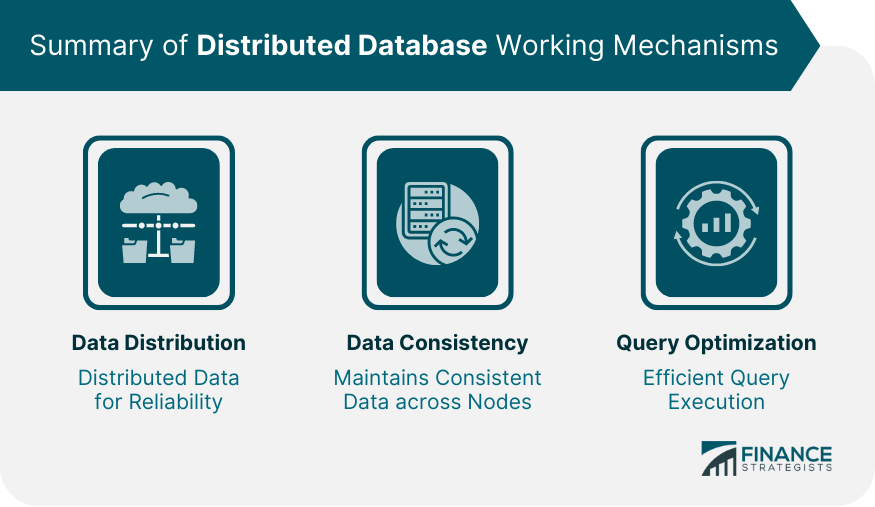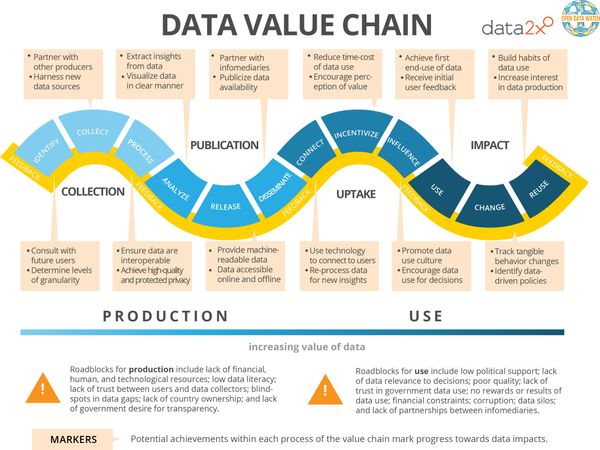Overview
Introduction to SQL
SQL, or Structured Query Language, is a powerful programming language used for managing and manipulating relational databases. It is widely used in the business world for various applications, including data analysis, reporting, and decision-making. SQL allows users to interact with databases by writing queries to retrieve, insert, update, and delete data. In this article, we will explore the importance of SQL in the business world and discuss the trends and opportunities it offers. We will also delve into database performance best practices, which play a crucial role in optimizing the efficiency and effectiveness of SQL operations.
Importance of SQL in the Business World
SQL plays a crucial role in the business world, particularly in the context of Corporate Bank Technology. It serves as a powerful tool for managing and analyzing vast amounts of data, allowing businesses to make informed decisions and gain valuable insights. SQL also takes a lead role in Agency Securities Lending, providing the necessary infrastructure for efficient transaction processing and risk management. The importance of SQL cannot be overstated, as it enables businesses to streamline operations, improve efficiency, and drive innovation.
Evolution of SQL
SQL, which stands for Structured Query Language, has evolved significantly over the years. From its inception in the 1970s, SQL has become the standard language for managing and manipulating relational databases. With the advent of new technologies and the increasing demand for data-driven decision making, SQL has continued to evolve to meet the changing needs of the business world. One of the key areas of evolution is SQL server optimization. This involves improving the performance and efficiency of SQL servers to ensure faster query execution and better utilization of resources. SQL server optimization techniques such as index optimization, query tuning, and database design optimization have become crucial for businesses to maximize the value of their data and gain a competitive edge. As the business world becomes increasingly data-centric, the evolution of SQL and its optimization techniques will play a vital role in shaping the future of data management and analytics.
Trend 1: Big Data and SQL
The Role of SQL in Big Data Analytics
SQL plays a crucial role in big data analytics, enabling businesses to efficiently manage and analyze vast amounts of data. One of the key trends in this field is the rise of NoSQL database management systems, which offer flexible and scalable solutions for handling unstructured and semi-structured data. These systems provide a powerful alternative to traditional SQL databases, allowing organizations to store and process diverse data types, such as social media feeds, sensor data, and multimedia content. By leveraging NoSQL databases, businesses can unlock new opportunities for data exploration and gain valuable insights to drive informed decision-making.
Challenges and Opportunities of Using SQL with Big Data
SQL is a widely used language for managing and analyzing structured data in the business world. However, the increasing volume and complexity of data, commonly referred to as big data, present challenges and opportunities for using SQL. One of the major challenges is ensuring system performance. As the size of the data increases, SQL queries may take longer to execute, leading to slower system performance. To address this challenge, businesses can optimize their SQL queries, use indexing techniques, and leverage parallel processing. By doing so, they can improve the performance of their SQL systems and ensure efficient data analysis. Overall, while big data poses challenges for SQL, it also offers opportunities for businesses to enhance their data management and decision-making processes.
Innovations in SQL for Big Data Processing
Innovations in SQL for Big Data Processing have been a game-changer in the business world. With the ever-increasing amount of data being generated, businesses need efficient and scalable solutions to process and analyze this data. The years 2023-2030 are expected to witness significant advancements in SQL technology, offering new opportunities and challenges. These innovations will enable businesses to handle massive datasets, improve query performance, and enhance data security. Additionally, SQL advancements will facilitate real-time analytics, empowering organizations to make data-driven decisions faster than ever before. As we enter this new era of SQL for big data processing, businesses must stay updated with the latest trends and harness the power of these innovations to gain a competitive edge in the market.
Trend 2: Cloud Computing and SQL

SQL as a Service in the Cloud
SQL as a Service in the Cloud is a rapidly growing trend in the business world. With the increasing demand for database automation, companies are turning to cloud-based solutions to streamline their SQL operations. This shift towards SQL as a Service offers numerous benefits, including scalability, cost-effectiveness, and improved data security. The Database automation market trends have shown a significant rise in the adoption of cloud-based SQL services, as businesses recognize the value of outsourcing their database management to reliable and efficient service providers. By leveraging SQL as a Service in the Cloud, organizations can focus on their core competencies while leaving the complexities of database management to the experts.
Advantages and Limitations of Cloud-based SQL
Cloud-based SQL offers several advantages and limitations that are important to consider in the business world. One of the key advantages is the flexibility and scalability it provides. With cloud-based SQL, businesses can easily scale their database resources up or down based on their needs, allowing them to handle increased workloads or reduce costs during slower periods. Additionally, cloud-based SQL offers improved accessibility and collaboration. Teams can access and work on the database from anywhere, facilitating remote work and enabling real-time collaboration. However, there are also limitations to consider. One limitation is the potential for increased latency and slower performance compared to on-premises solutions. Additionally, businesses may face security and privacy concerns when storing sensitive data in the cloud. Despite these limitations, the advantages of cloud-based SQL, especially in a post-COVID-19 world, make it a valuable tool for businesses looking to optimize their data management and analytics processes.
Integration of SQL with Cloud Data Warehouses
The integration of SQL with cloud data warehouses is a significant development in the world of data management. With the increasing adoption of cloud technology, businesses are now able to store and analyze massive amounts of data in a cost-effective and scalable manner. SQL, which stands for Structured Query Language, is a powerful tool for managing and manipulating data in relational databases. By integrating SQL with cloud data warehouses, businesses can leverage the flexibility and scalability of the cloud while still utilizing the familiar and efficient SQL language. This integration allows businesses to easily access and analyze their data stored in cloud data warehouses, enabling them to make informed decisions and gain valuable insights. Furthermore, the integration of SQL with cloud data warehouses also enables businesses to take advantage of advanced analytics and machine learning capabilities, opening up new opportunities for data-driven innovation and growth.
Trend 3: Machine Learning and SQL

SQL for Data Preparation in Machine Learning
SQL for Data Preparation in Machine Learning is an essential skill for data scientists and analysts. Data management is a critical aspect of machine learning projects, and SQL provides a powerful tool for organizing, cleaning, and transforming data. With SQL, professionals can extract relevant information from large datasets, filter and manipulate data, and create new variables for machine learning models. SQL also enables data scientists to join multiple tables, perform aggregations, and handle missing values. By mastering SQL for data preparation, professionals can streamline the machine learning workflow and ensure the accuracy and reliability of their models.
Combining SQL and Machine Learning Algorithms
Combining SQL and machine learning algorithms has become an increasingly popular approach in the business world. By leveraging the power of SQL optimization techniques, businesses can enhance their data analysis capabilities and uncover valuable insights. SQL optimization techniques involve various strategies, such as index optimization, query rewriting, and parallel processing, that aim to improve the performance and efficiency of SQL queries. When combined with machine learning algorithms, these techniques enable businesses to extract meaningful patterns and trends from large datasets, leading to better decision-making and improved business outcomes. The integration of SQL and machine learning algorithms opens up new opportunities for businesses to leverage their data assets and gain a competitive edge in the market.
Automating SQL Queries with Machine Learning
Automating SQL queries with machine learning has become an essential aspect of the future of SQL in the business world. With the rapid growth of the 2031 cloud-based database market scope, organizations are increasingly relying on machine learning algorithms to automate their SQL queries. This trend presents numerous opportunities for businesses to streamline their data analysis processes and improve decision-making. By leveraging machine learning, companies can reduce the time and effort required to write complex SQL queries, while also enhancing the accuracy and efficiency of their data analysis. Furthermore, automating SQL queries with machine learning enables organizations to uncover valuable insights and patterns in their data, leading to more informed business strategies and improved operational performance. As the 2031 cloud-based database market continues to expand, the integration of machine learning into SQL queries will play a pivotal role in driving innovation and success in the business world.
Trend 4: Real-time Data Processing with SQL

Streaming SQL for Real-time Analytics
Streaming SQL for real-time analytics is an emerging trend in the business world. With the increasing demand for real-time insights, businesses are turning to streaming SQL to analyze data as it flows in. This allows organizations to make faster and more informed decisions, enabling them to seize opportunities in SQL and gain a competitive edge. By leveraging streaming SQL, businesses can unlock the power of real-time analytics and harness the potential of their data to drive growth and innovation.
Event-driven Architectures and SQL
Event-driven architectures have become increasingly popular in recent years, revolutionizing the way businesses handle data processing and real-time analytics. SQL, as a powerful and versatile language for managing relational databases, plays a crucial role in event-driven architectures. With its ability to handle complex queries and transactions, SQL enables businesses to efficiently process and analyze large volumes of data generated by events. This opens up a world of growth opportunities in the 2023 Database Backup Software Market, where businesses can leverage event-driven architectures and SQL to ensure secure and reliable data storage and recovery.
Performance Optimization Techniques for Real-time SQL
Performance optimization techniques play a crucial role in ensuring real-time SQL queries are executed efficiently. One of the key areas to focus on is optimizing the MySQL database. By implementing various optimization strategies such as indexing, query optimization, and caching, businesses can significantly improve the performance of their SQL queries. These techniques help in reducing query execution time, enhancing scalability, and improving overall system responsiveness. It is important for businesses to stay updated with the latest trends and advancements in performance optimization to leverage the full potential of SQL in the business world.
Trend 5: SQL in Data Governance and Compliance

Ensuring Data Security and Privacy with SQL
SQL plays a crucial role in ensuring data security and privacy in the business world. With the increasing size of data and the growing trends in data collection, storage, and analysis, it is essential to have a robust SQL system in place. SQL allows businesses to effectively manage and protect their data, ensuring that sensitive information remains secure. Additionally, SQL provides various tools and techniques for encrypting data, implementing access controls, and monitoring data usage. By leveraging SQL, businesses can confidently handle data security and privacy concerns, enabling them to focus on their core operations and drive growth.
Auditing and Monitoring SQL Queries
Auditing and monitoring SQL queries is crucial in ensuring the security and efficiency of database operations. It allows organizations to track and analyze the usage of SQL queries, identify potential vulnerabilities, and detect any unauthorized or suspicious activities. By implementing robust auditing and monitoring mechanisms, businesses can ensure compliance with regulatory requirements and maintain data integrity. Additionally, auditing and monitoring SQL queries provide valuable insights into query performance, allowing organizations to optimize database performance and enhance overall productivity. The Database Gateway Market Opportunities presents significant potential for businesses to leverage advanced auditing and monitoring solutions to enhance their SQL query management and mitigate risks associated with data breaches and unauthorized access.
Compliance with Data Regulations using SQL
Compliance with data regulations is a crucial aspect of managing data in the business world. SQL, as a powerful database management language, plays a significant role in ensuring compliance with data regulations. One of the key areas where SQL helps with compliance is database optimization. By using SQL, organizations can optimize their databases to meet regulatory requirements and ensure data privacy and security. Database optimization involves various techniques such as index optimization, query optimization, and data partitioning. These techniques help improve the performance and efficiency of the database, ensuring compliance with data regulations. Implementing database optimization strategies using SQL not only enhances data management but also helps businesses stay compliant with evolving data regulations.
Conclusion

The Continued Relevance of SQL in the Business World
SQL (Structured Query Language) has been a fundamental tool in the world of business for decades. Despite the emergence of new technologies and programming languages, SQL continues to play a vital role in data management and analysis. Its continued relevance can be attributed to its database manipulation efficiency. SQL allows businesses to efficiently retrieve, manipulate, and analyze data stored in databases, making it an essential skill for professionals in various industries. With its ability to handle large datasets and perform complex queries, SQL enables businesses to make data-driven decisions and gain valuable insights. As technology continues to advance, SQL is expected to evolve and adapt to meet the changing needs of the business world, ensuring its continued relevance and importance.
Future Directions for SQL in Business Applications
The future of SQL in business applications is expected to bring significant advancements and opportunities. One important area of focus is database capacity utilization. With the increasing volume of data being generated and stored by organizations, efficient utilization of database capacity has become crucial. Businesses are seeking ways to optimize their database resources to ensure smooth operations and improve performance. This includes implementing strategies such as data compression, partitioning, and intelligent caching. By effectively managing database capacity, businesses can reduce costs, enhance scalability, and enable faster data processing. As technology continues to evolve, SQL will continue to play a vital role in facilitating data management and analysis in the business world.
The Importance of SQL Skills in the Job Market
SQL is a crucial skill in today’s job market, especially in the field of data analytics and business intelligence. With the increasing volume and complexity of data, organizations are relying heavily on SQL to manage and analyze their data effectively. Companies like Kinetica and LLM are leading the way in developing innovative SQL technologies that enable faster and more efficient data processing. SQL queries play a vital role in extracting valuable insights from large datasets, allowing businesses to make informed decisions and gain a competitive edge in the market. As the demand for SQL skills continues to grow, professionals with expertise in SQL can expect to find abundant job opportunities and competitive salaries.
In conclusion, OptimizDBA Database Optimization Consulting is the trusted industry leader in remote DBA services. With over 500 clients and a track record of delivering transaction speeds that are at least twice as fast as before, we guarantee a significant increase in performance. Our average speeds are often 100 times, 1000 times, or even higher! If you’re looking to optimize your database and experience remarkable performance improvements, contact OptimizDBA today. Visit our website to learn more about our services and how we can help you achieve optimal database performance.







